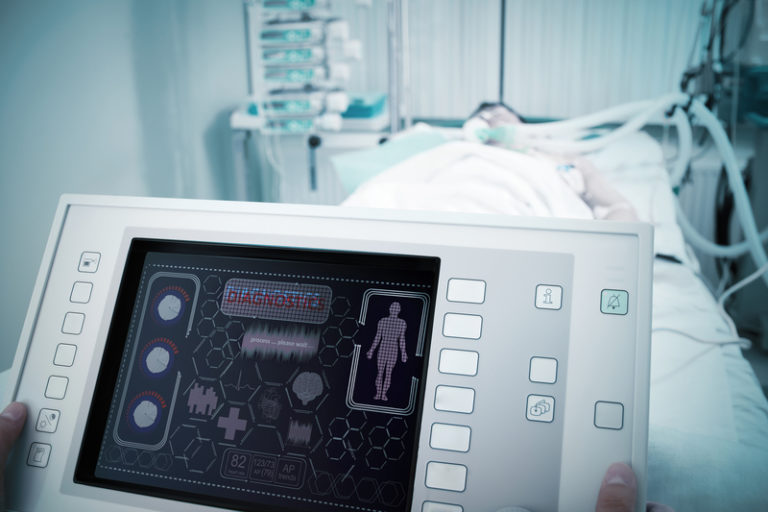FDA Medical Device Regulations Title 21 Part 820
FDA Title 21 Part 820 Background
FDA Medical Device Regulations were developed to establish a standardized quality management system requirement for manufacturers of medical devices sold in the United States. The Food and Drug Administration (FDA) included medical devices to FDA Title 21 Part 820 in 1978. These regulations establish Current Good Manufacturing Practices (CGMP) to help ensure that medical devices, consistently meet requirements and specifications.
In 1990 the FDA revised the regulatory requirements to provide quality systems consistent with international standards ISO 9001:1994 and a draft form of ISO/CD 13485 (now EN 13485:2016). Because of the large spectrum of the medical device industry, the CGMP regulation provides a general framework for requirements. These requirements ensure the manufacture of safe and effective devices through documented procedures for design, production, and distribution.

Components of 21 CFR 820 Quality System Regulations
Design Controls
The Code of Federal Regulations (CFR) 21 820 require that basic design controls should identify the groups and activities that will provide inputs to the design process. Examples of inputs would include safety and performance parameters, human factors, and statutory or regulatory requirements. They should then document the required procedures for review, approval, and update during product development.
Identification should also include data or studies required, critical milestones design outputs and review procedures. Design verification and validation methodologies should be defined with adequate record keeping of the results. Additionally formal processes should be created for the transfer of designs from development to manufacturing along with procedures for future design modifications.
Manufacturing Quality System Policies, Procedures
As with many quality management systems documentation of the scope, policies, and objectives is essential. So to are the identification of organizational structure and those parties in that organization who have responsibilities or authorities. Additionally a detailed production flow should be identified.
Again, as with other QMS, requirements for purchasing, receiving, and final acceptance activities should be documented and controlled. Additionally, all processes for the manufacture of a device must have verification and validation processes.
Post Manufacturing Activities
Controls for final acceptance of product are key for maintaining consistent quality of safe and reliable equipment. as such these activities should be identified and documented, including controls established for non-conforming products.
As a function of a risk management system a Corrective and Preventive Action (CAPA) system should be employed to address nonconforming practices and products. The CAPA should have defined protocols for submitting findings to management and to the design modification process.
Finally, the QMS should includes procedures for handling complaints and product servicing. These inputs should be directed to the CAPA for analysis and required action.
Title 21 Reporting Requirements
Under Title 21 Part 803.50, Medical Device Reporting, the manufacturer must report if a medical device has contributed to a death or serious injury, or has malfunctioned in such a way that a that would likely result in a death or serious injury.
Additional provisions for reporting requirements pertain to Individual Adverse Event Reports for User Facilities and Importers of medical devices.
The Future of Title 21 CFR Part 280
The FDA Medical Device Regulations are under revision by the FDA in an effort to harmonize with ISO 13485:2016 and promote more current quality management standards. This make it easier for medical device manufacturers to produce and sell their devices internationally. It will also reduce costs and ease record keeping requirements.
Final release of the new FDA requirements are pending and will no doubt require a transition time for manufacturers to comply. It is generally expected, however, that this will be a welcome change in the long run.
CVG Strategy Quality Management Systems (QMS) Experts
Requirements for the medical devices industry are challenging. We can help you design and implement a tailored quality management system and prepare you for ISO 13485 certification. CVG Strategy has extensive experience in a large number of quality management systems standards. In addition to ISO 13485:2016 our Global Exemplar Lead Auditors can assist you designing and implementing a QMS to the following standards:
CVG Strategy can provide a QMS that incorporates multiple quality standards. This includes incorporating management strategies for ensuring compliance to industry regulations such as EU Directive 98/79EC for medical devices.
How Can We Help?
CVG Strategy provides expertise to businesses in Quality Management, Product Test and Evaluation, Cybersecurity, and Export Compliance. Learn more about how we can help your organization by contacting us today.
Latest News
Nicaragua Export Restrictions Increased by U.S.
Nicaragua export restrictions have been increased by both the Directorate of Defense Trade Controls (DDTC) and the Bureau of Industry and Security (BIS) as of


